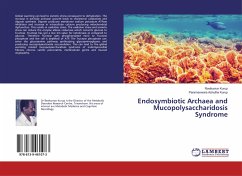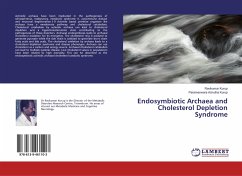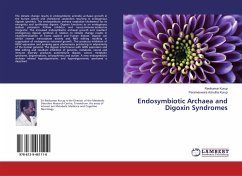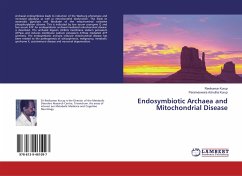The human brain synthesizes an endogenous membrane sodium-potassium ATPase inhibitor digoxin which plays a role in neuro-immuno-endocrine integration and pathogenesis of several neuropsychiatric and systemic diseases. Endogenous digoxin, a steroidal glycoside that functions as a membrane sodium-potassium ATPase inhibitor has also been related to its etiology due to the intracellular magnesium deficiency it produces. Endogenous digoxin has been linked to hemispheric dominance. Right hemispheric dominant individuals were hyperdigoxinemic, left hemispheric dominant individuals were hypodigoxinemic and bihemispheric dominant individuals were normodigoxinemic. The possibility of endogenous digoxin synthesis by an actinide-based primitive organism like archaea with a mevalonate pathway and cholesterol catabolism. Hemispheric dominance and digoxin-induced mitochondrial dysfunction are related to the tridosha states.








